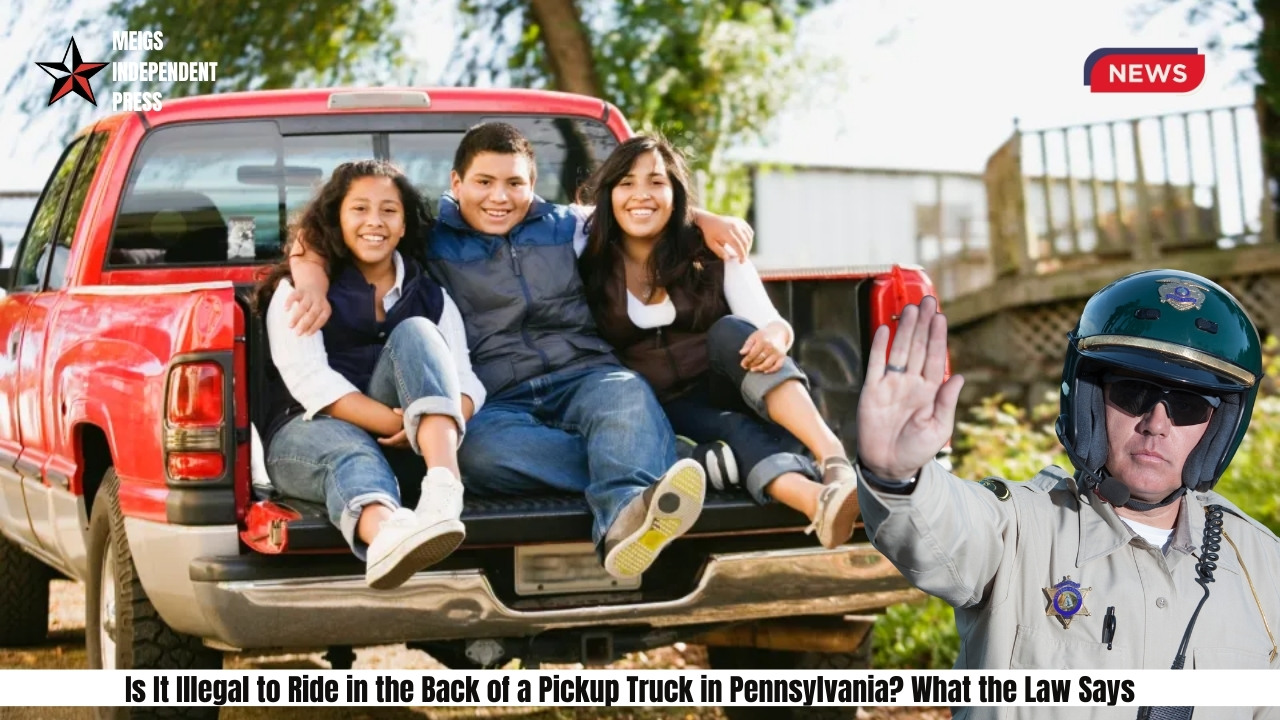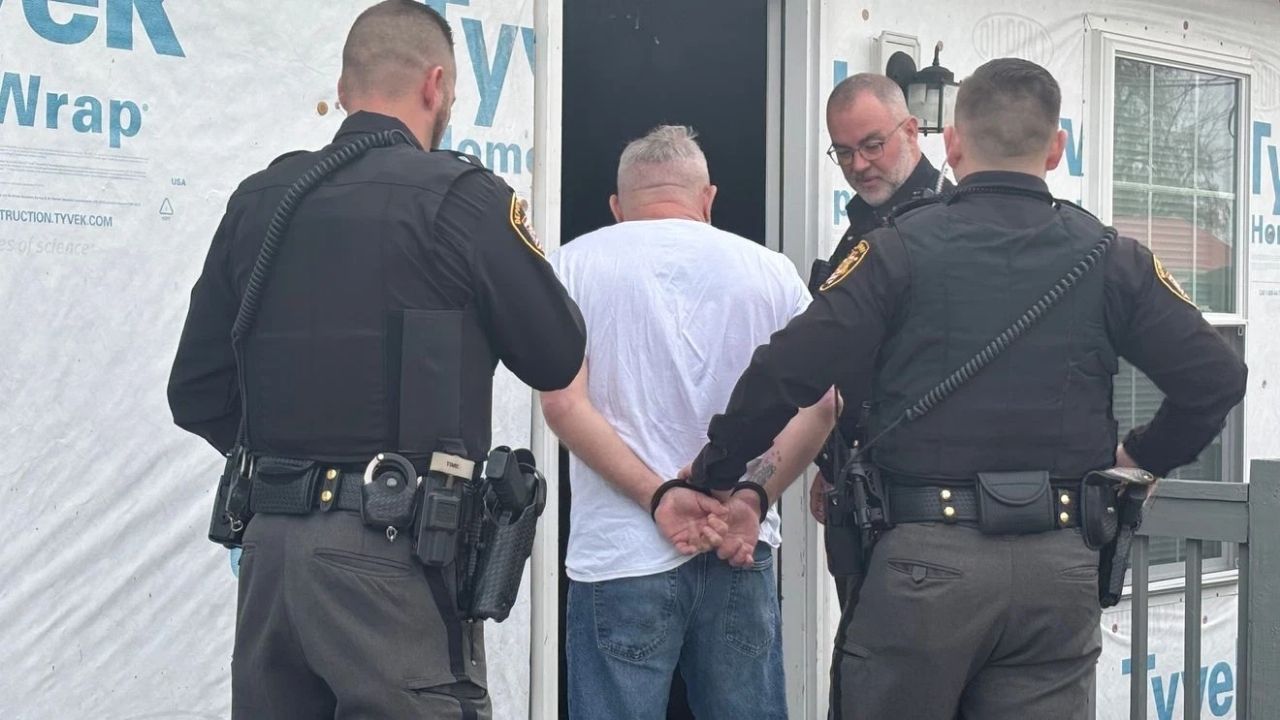The scene is an American classic: a warm summer evening, a dusty country road, and a group of friends laughing in the open bed of a pickup truck, wind in their hair. It’s a picture of freedom and simple fun that feels woven into the fabric of rural life. But as you pass a state trooper or head into a more populated area, a nagging question might pop into your head: Is this actually legal?
In Pennsylvania, the answer isn’t a simple “yes” or “no.” It’s a nuanced topic that blends specific state laws with broader principles of safety and liability. While the iconic image persists, the reality of the risks and legalities is far more complex. This article will break down exactly what Pennsylvania law says, explore the immense dangers involved, and discuss the potential consequences that go far beyond a simple traffic ticket.
The Keystone State’s Official Stance: Pennsylvania Title 75
The primary piece of legislation governing this issue is found in the Pennsylvania Vehicle Code, specifically Title 75, Section 3719: Passengers in open trucks.
This law is surprisingly specific and focuses almost exclusively on the protection of minors. It states that it is unlawful to operate a truck or truck tractor with a person or persons under 18 years of age occupying the bed of the vehicle.
This is the core of the law: If you have anyone under 18 in the back of an open pickup truck while it’s in motion, you are breaking the law. However, like many laws, this one comes with a few key exceptions.
Understanding the Exceptions
The prohibition on minors riding in truck beds does not apply in the following specific circumstances:
- For Agricultural Purposes: If the vehicle is being used in an agricultural operation and is traveling between different parts of a farm or from a farm to another farm owned by the same person. This is a practical exception designed for farm workers in rural settings.
- During Parades: If the vehicle is being used in an officially sanctioned parade, festival, or other public procession and is traveling at a speed of 25 miles per hour or less.
- When the Cabin is Full: This is the most significant and often misinterpreted exception. A minor is permitted to ride in the truck bed if the passenger cab of the truck is completely full of passengers. The law essentially allows for an “overflow” situation, but this does not make it a safe or recommended practice.
What About Adults? The Legal Gray Area
You may have noticed that Section 3719 specifically mentions individuals “under 18 years of age.” The statute is silent on the matter of adults. This means that, under this specific law, there is no direct prohibition against an adult (18 or older) riding in the back of a pickup truck in Pennsylvania.
This is where the conversation shifts from what is strictly illegal to what is dangerously unwise. While an officer may not be able to cite you under Section 3719 for having an adult in the back, it opens the door to other potential violations and, more importantly, catastrophic risk.
Beyond the Statute: The Dangers No Law Can Prevent
Legality is one thing; physics is another. The bed of a pickup truck is designed to haul cargo, not people. It lacks every single safety feature that has been engineered into the passenger cabin of a modern vehicle over the last 50 years.
When you ride in a truck bed, you are, in effect, human cargo.
The Catastrophic Risk of Ejection
The single greatest danger is being ejected from the vehicle. According to the Insurance Institute for Highway Safety (IIHS), a significant percentage of pickup truck occupant deaths involve ejection. People riding unrestrained in a cargo bed are among the most vulnerable.
- In a Collision: Even a moderate-impact collision can generate enough force to launch a person from the truck bed onto the pavement or into another vehicle.
- In a Rollover: A rollover accident is almost always unsurvivable for anyone in an open truck bed.
- During a Sudden Maneuver: A driver swerving to avoid a deer, a pothole, or another car can easily be enough to throw a passenger out. The same goes for a sudden, hard brake.
A study from the American College of Surgeons found that individuals transported in the back of a pickup truck were over eight times more likely to die in a crash than restrained passengers in the cab. The human body simply isn’t meant to withstand that kind of impact.
Other Hidden Dangers
Beyond the immediate risk of ejection, several other serious dangers exist:
- Lack of Safety Systems: There are no seat belts, no airbags, no reinforced steel cage, and no crumple zones to absorb impact. You are completely exposed.
- Road Debris: Small rocks, tire fragments, or other debris kicked up from the road or falling from other vehicles become high-speed projectiles that can cause serious injury.
- Carbon Monoxide Poisoning: The vehicle’s exhaust fumes can be drawn back into the bed of the truck, especially in slow-moving traffic. Prolonged exposure can lead to dizziness, nausea, and potentially fatal carbon monoxide poisoning.
- Weather Exposure: Passengers in the bed are completely exposed to the elements, from the searing sun which can cause heatstroke, to sudden rainstorms that can make the truck bed dangerously slick.
The Ripple Effect: Insurance, Liability, and Other Charges
Even if you avoid a ticket under the specific “passengers in open trucks” law, you are not in the clear. The decision to let someone ride in the back can have devastating legal and financial consequences.
Discretionary Charges: Reckless Driving and Endangerment
A police officer who sees a truck with passengers in the back, especially if it’s being driven at high speed or in a questionable manner, has other tools at their disposal. They could potentially charge the driver with a more general but serious offense, such as:
- Reckless Driving: This involves operating a vehicle with “willful or wanton disregard for the safety of persons or property.” An argument could easily be made that allowing passengers to ride in an unprotected cargo bed fits this description.
- Recklessly Endangering Another Person (REAP): This is a criminal charge that applies when a person’s reckless conduct places another person in danger of death or serious bodily injury.
These charges carry much steeper penalties than a simple traffic violation, including heavy fines, license suspension, and even jail time.
The Insurance Nightmare
In the event of an accident, your auto insurance company will conduct a thorough investigation. If they find that you knowingly allowed passengers to ride in an unsafe and potentially illegal manner, they may have grounds to:
- Deny a Claim: They could refuse to cover the medical expenses of the injured passenger, leaving you personally liable for what could be hundreds of thousands of dollars in medical bills.
- Cancel Your Policy: The insurance company may view you as an unacceptable risk and drop your coverage entirely, making it incredibly difficult and expensive to get insured in the future.
Civil Liability: A Life-Altering Lawsuit
If a passenger is injured while riding in the back of your truck, they (or their family) can sue you for negligence. Your decision to allow them to ride in the cargo bed would be the central point of their case. The fact that the practice is inherently dangerous, and illegal for minors, would be powerful evidence against you. A civil lawsuit could result in a judgment that leads to financial ruin, wiping out your savings, assets, and future earnings.
The Final Verdict
So, is it illegal to ride in the back of a pickup truck in Pennsylvania?
- For anyone under 18: Yes, it is illegal, with very limited exceptions for farming, parades, and overflow situations.
- For adults 18 and over: It is not specifically prohibited by the “passengers in open trucks” law, but it is a monumentally bad idea.
The law for adults exists in a gray area, but the danger is black and white. It exposes passengers to a high risk of catastrophic injury or death and exposes the driver to severe legal, financial, and criminal liability. The nostalgic image of a carefree ride in the back of a truck belongs in old photographs, not on modern roads. The only safe ride is a belted ride inside the cab.








Leave a Reply